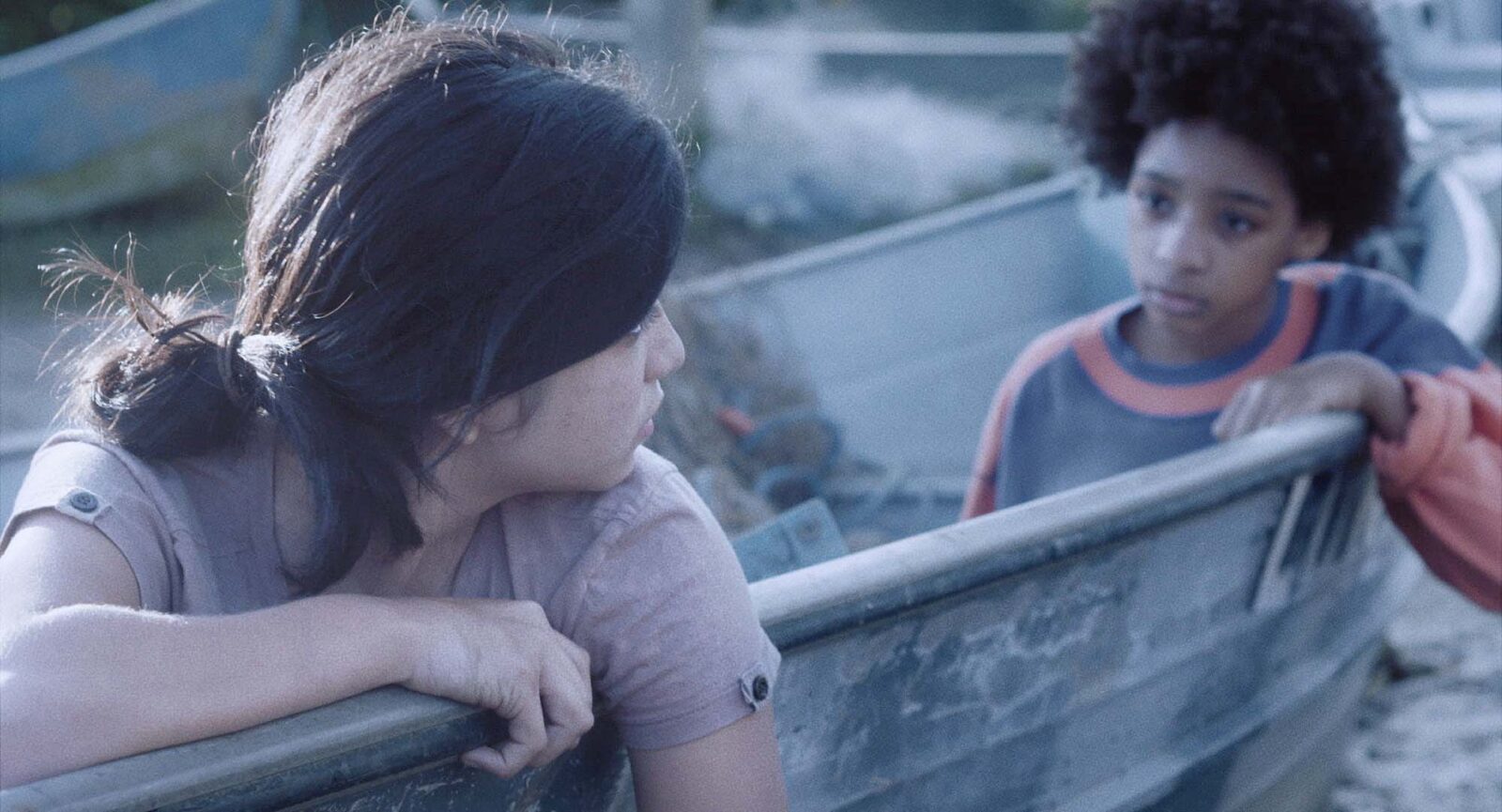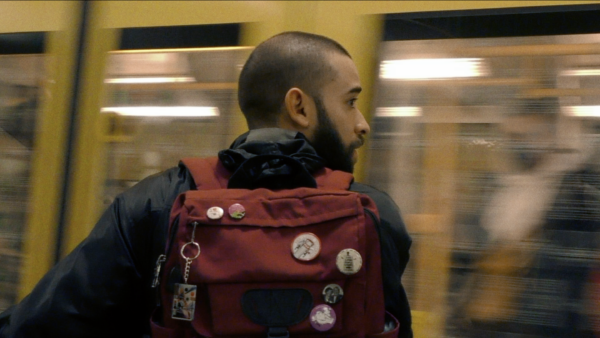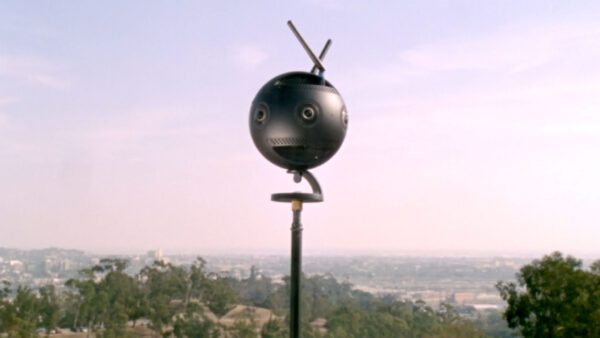When The Piranha Strikes, It Feels No Shame
Menarca
Lillah Halla’s third short film opens underwater, below sea level, a place that has become the victim of relentless pollution. Though never in the foreground, Halla makes the topic sufficiently tangible to allow Menarca to be grounded in ecocritique.

When local fishermen capture a mysterious creature in a Brazilian village infested with piranhas, Nanã’s encounter with it evolves into fraternization. As one of the men tries to free the beast from the nets to uncover its gender, he must bear the immediate consequences of this unsolicited and disgusting action, as the hybrid beast bites off a finger in defense. The man doesn’t learn, forcing Nanã and Mel to protect not only the piranha-woman called Baubo but also themselves against the seemingly inescapable violence surrounding them. In an attempt to prevent Baubo’s tragic fate, Nanã consults it. As she listens to the underbelly of nature, she accepts knowledge that is not strictly anthropocentric.
Menarca refers to menarche: a woman’s first menstrual cycle that announces her sexual maturity. Wilsaa Esser’s fluid cinematography allows early mornings to symbolise this ritual transition—the dawn of female adulthood. The hopeful daybreak, however, soon changes into a pitch-black night in which men’s surging aggression peaks. Nanã courageously resists this hostile context tightening around her and other female companions. The idea of breaking free from the strangling corset that is a toxic masculine environment also nurtures thoughts of resistance against the mismanagement of Bolsonaro (& other right-wing leaders), whom this Brazilian-Italian director for sure must be familiar with.
Lillah Halla’s third short film opens underwater, below sea level, a place that, over decades, has become the victim of relentless pollution and the significant loss of biodiversity. There are plenty of parallels between how humankind treats (the rights of) women and (the rights of) nature. Would we be more proactive in saving the planet if we labelled her Father Earth instead? This notion never runs in the foreground of Halla’s film, but she makes it sufficiently tangible to allow Menarca to be grounded in some ecocritique nonetheless.
Due to its acidic nature, it’s rather tricky, maybe even impossible, to represent the notion of the “vagina dentata” (“toothed vagina”) in a subtle way. Halla uses this symbol for castration fear as a catalyst. This daring move comes with merits and implies the loss of its severity, as it fails to surmount reality’s complexity. Though biting provides an instant impact, digestion is what ultimately matters most.
In “(In) Praise of Feeling Bad About Yourself” (*), Polish poet and essayist Wislawa Szymborska concludes that piranhas feel no shame when they attack. The same applies to buzzards, panthers, snakes, jackals, lions, and orcas. The animal kingdom is granted exemption across the board when it comes down to the question of guilt, an idea even more striking when you know that sexually active women are denigratingly called ‘piranhas’ in Brazilian Portuguese in the context of omnipresent slut-shaming.
Therefore, Szymborska’s fate for the human species is straightforward and unambiguous: “On this third planet of the sun / among the signs of bestiality / a clear conscience is Number One.” Guilt makes human beings human, a concept partly left without evidence in Menerca, in which revenge replaces responsibility. In this vengeance, Halla gives way to a generous portion of well-founded disobedience from Nanã’s side, which is also this fantasy drama’s greatest strength: underlining thoughtful agency as an effective antidote to a toxic macho culture.
—
(*)
In Praise of Feeling Bad about Yourself
11 Excerpt From: Wislawa Szymborska. “Poems New and Collected.” iBooks ↩︎
The buzzard never says it is to blame.
The panther wouldn’t know what scruples mean.
When the piranha strikes, it feels no shame.
If snakes had hands, they’d claim their hands were clean.
A jackal doesn’t understand remorse.
Lions and lice don’t waver in their course.
Why should they, when they know they’re right?
Though hearts of killer whales may weigh a ton,
in every other way they’re light.
On this third planet of the sun
among the signs of bestiality
a clear conscience is Number One.





There are no comments yet, be the first!